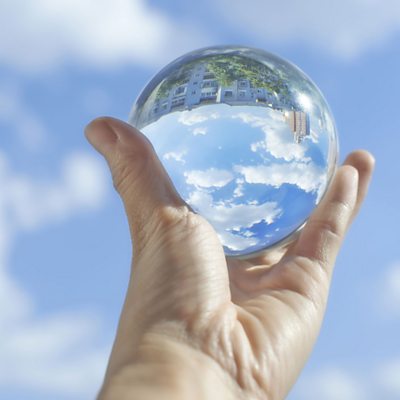Episode details

Available for over a year
Last week I was at a conference in Prague where the topic of discussion was democracy and education. Despite the variety of people in the impressive venue, almost every conversation focused on the current migrant issue or more specifically the Muslim migrant issue. One young Czech woman challenged me about the recent exodus of people, saying that her country and other central European countries did not want to copy western Europe, buying into these liberal values and now facing the pitiful failure of the multicultural experiment. For her and others Muslims just couldn’t integrate because of their faith and Czech society may not be very Christian but it was homogeneous. Some in the audience looked uncomfortable but many nodded approvingly. Perhaps reflecting the words of their own President Milos Zeman who two years before he was elected, described Islam as the "enemy of euro-Atlantic civilisation". Earlier this week, the US presidential republican candidate Ben Carson provoked controversy by saying that he would not advocate putting a Muslim in charge of America. It seems to me that whatever the peg, immigrants or the presidency, a central issue in our political debates is Islam. The point is not that Mr Carson’s speech went against the American constitution, it is that he was echoing what many people think. A country can erect as many walls and fences it wants but in a globalised age, you can’t stop societies from changing, from absorbing new ideas and reassessing the principles they stand for. But I can understand why some people say what they say about Islam and those Muslims who refuse to accept that there are real ethical issues around family, education and integration, are living in denial. There may well be experiences of racism, unfairness and hypocrisy at times in the west. But there are also Muslims who remain unwilling to accept that some cultural practices have to remain open to change. It seems that it isn’t visual diversity but intellectual diversity which makes coexistence difficult. Here, its important to see religious faith in wider civilizational and intellectual contexts than simply holding onto certain traditions which no longer carry any moral weight. As hundreds of thousands of Muslims return to Europe from the annual Hajj pilgrimage later this week, they will have prayed for spiritual transformation, for solace and a closeness to God and the fortunate may have felt touched by the hand of God. There is a beauty and simplicity here. Yet any faith which hides itself from suspecting eyes, and which only sees itself as either victim or dominant, will not grow, but collapse under the weight of its own delusions. Much of the discourse around Islam will change when there is a change in people’s lives, made explicit in the Qur’anic words, `God will not change the condition of a people until they change what is in themselves.
Programme Website